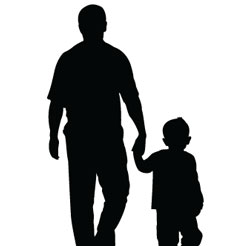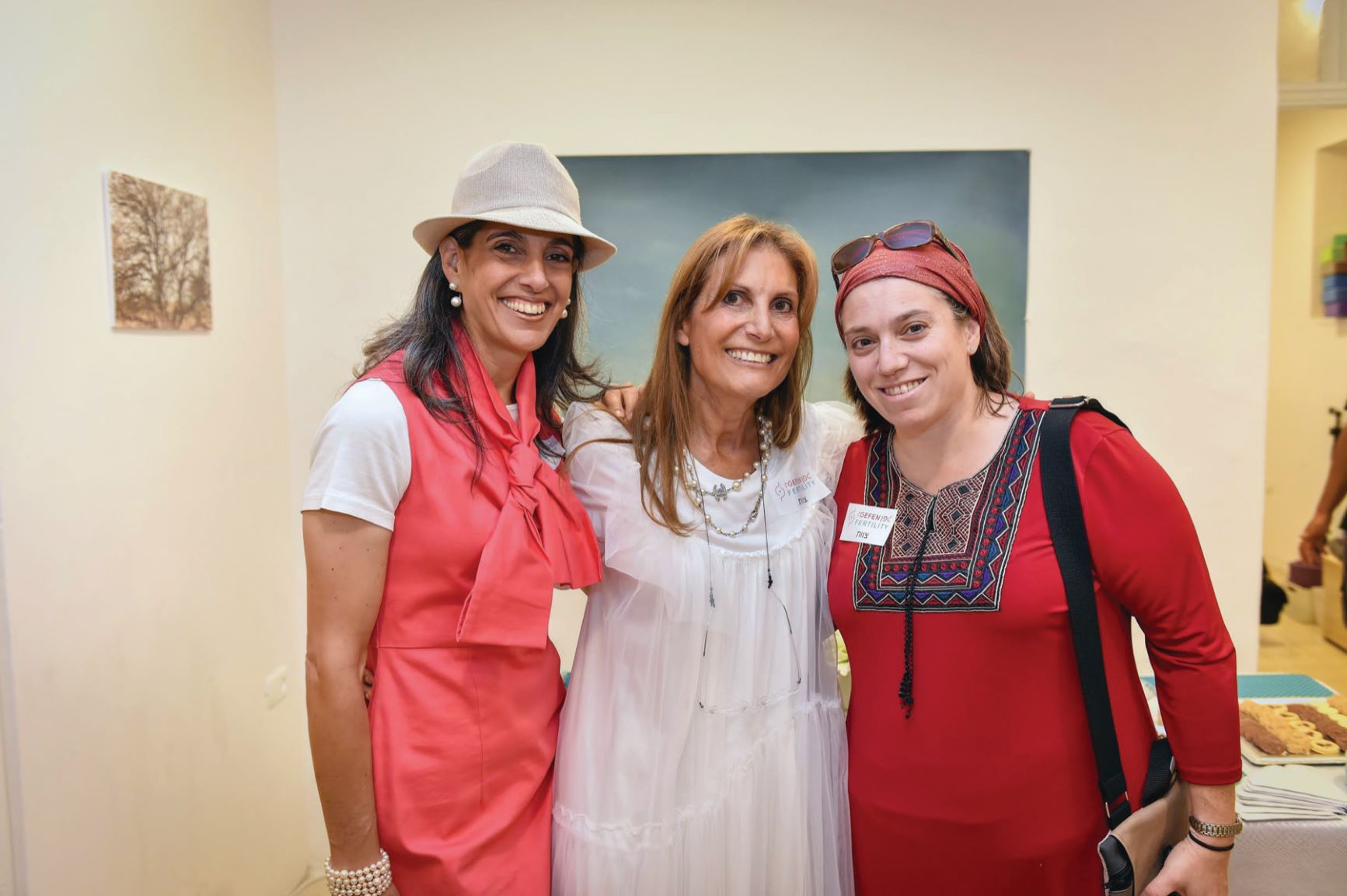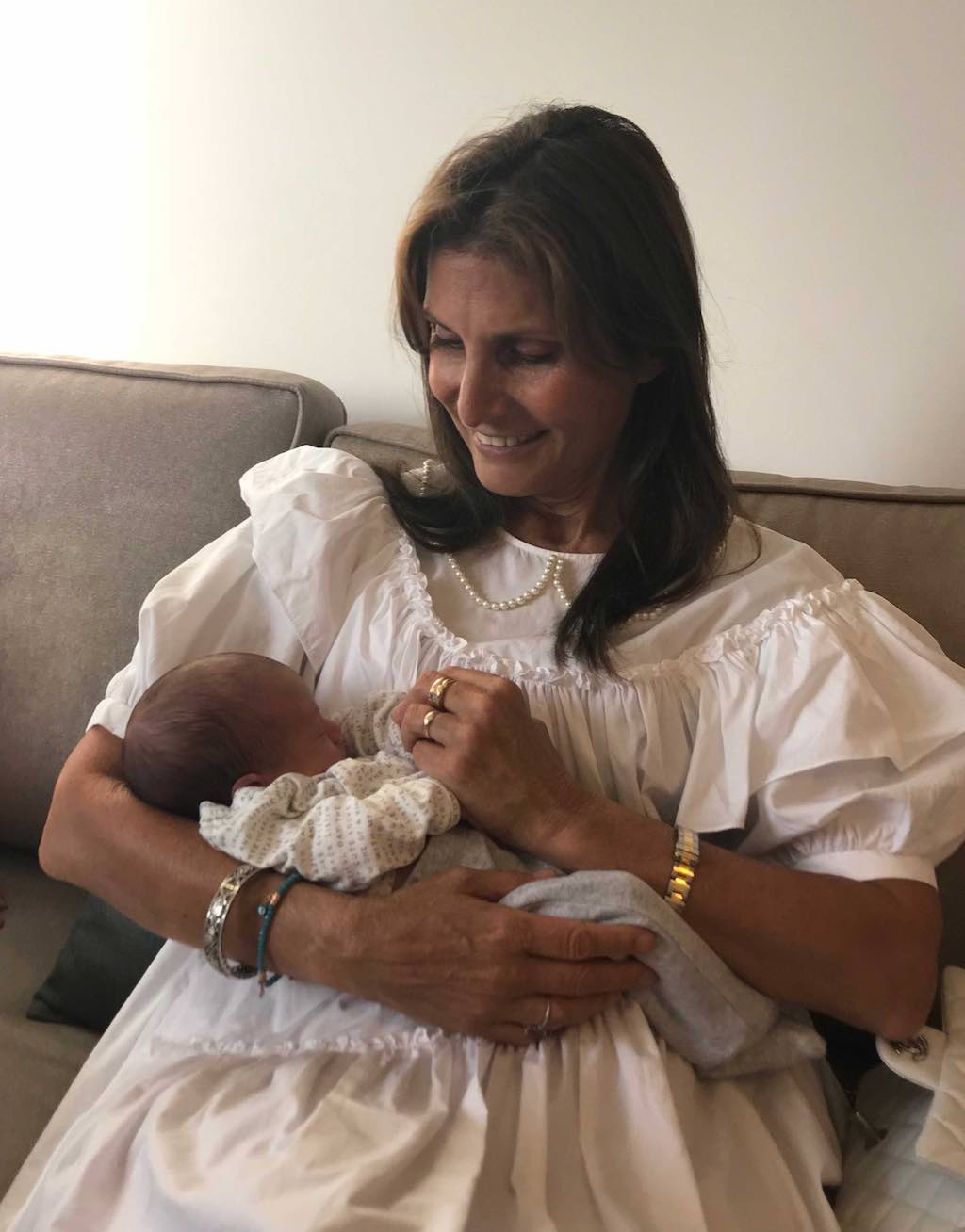- Details
- Written by: Sharona Margolin Halickman
Parshat Lech Lecha & Rachel Imenu’s Yahrzeit
Rachel: A role model for fertility challenged women
This week we will be commemorating Rachel, our foremother’s yahrzeit. Out of all of the forefathers and foremothers, Rachel’s yahrzeit is the only one officially commemorated by the Jewish community.
On Rachel’s yahrzeit, men and women from all over Israel come to Kever Rachel, Rachel’s Tomb to pray. Many women who are fertility challenged specifically come to Kever Rachel to pray for a child.
Why Rachel?
Each of our foremothers had a difficult time conceiving but Rachel’s story specifically stands out.
When Leah was able to conceive, she gave birth to child after child while Rachel remained childless. This was a very difficult time for Rachel and she did not hide her emotions.
In Breisheet 30:1 we read: “Rachel saw that she was not bearing children to Yaakov. Rachel became jealous of her sister, and she said to Yaakov, “Give me children; if not I am considered dead.”
Rachel was jealous, she felt worthless, she was open with her husband and told him exactly how she felt.
Yaakov’s answer which does not seem sympathetic is found in sentence 2, “Yaakov became very angry with Rachel and he said, ‘Am I in God’s place? It is He who has withheld from you the fruit of the womb.’”
Rachel did not accept this unsympathetic answer. Rather than get into an argument, she took action.
Where did Rachel gain inspiration from? She remembered that Sarah, Yaakov’s grandmother also had trouble getting pregnant as we read in Parshat Lech Lecha, Breisheet 16:1: “Avram’s wife Sarai had not borne him children. She had an Egyptian handmaid whose name was Hagar. Sarai said to Avram: “See now, God has restrained me from having children; pray, come to my handmaid perhaps I will be built up through her (oolai ibaneh mimenah)…”
Rachel told Yaakov in Breisheet 30:3, “Here is my handmaid, Bilha, consummate a marriage with her. Let her give birth upon my knees, and I too will have a son through her (v’ibaneh gam anochi mimenah).”
Even though it didn’t work out well with Hagar (Yishmael did not end up being Sarah’s surrogate son as she was hoping), since Sarah was so selfless, in the end she gave birth to Yitzchak, a child of her own. According to Rashi, Rachel was willing to do whatever was necessary to try to have a child including taking a chance of engaging a surrogate mother hoping that if it didn’t work out well, God may still reward her with a child.
In Rachel’s case, Bilha served as a surrogate mother and Rachel was blessed with Bilha’s children being considered as her own. In Sentence 6, “Rachel said, ‘God has judged me. He also heard my voice and has given me a son.’ She therefore named him Don (judge).” When Bilha gave birth to a second son, in sentence 8, Rachel named him Naftali which according to Rashi means “my prayer was accepted.”
Rachel is happy with her two “surrogate” children yet she still does not give up on trying for a child of her own. When she saw that Reuven had “doodaim” a type of flower often translated as mandrakes or jasmine, thought to have fertility powers, she was willing to trade a night with her husband.
After Leah had a few more children, Rachel finally got pregnant as it says in Breisheet 30:22-24, “God remembered Rachel and God listened to her and opened her womb. She conceived and gave birth to a son. She said, ‘God has removed my shame.’ She named him Yosef, saying, ‘May God add (yosef) to me another son.’”
Rachel’s faith was evident. Although we didn’t hear her prayer, we see that God listened. She was open about feeling shame in being unable to conceive. Instead of being satisfied with the fact that she finally gave birth, she didn’t waste any time and prayed for another child. Rashi points out that prophetically Rachel knew that Yaakov would have twelve tribes and she wanted to make sure that the last tribe would also come from her.
We have seen so many reasons why women who are fertility challenged can relate to Rachel. A woman who is not afraid to show her feelings, to take the initiative, to pray, to arrange for a surrogate mother to use fertility treatments and to never give up hope.
Today, we are living in a very different world. We have many innovations that couples who are fertility challenged can now take advantage of. Yet some things are still the same. The pain that a woman may be feeling, the need for a good sympathetic and listening ear, a space where she can be comfortable sharing her feelings, the desire to pray but not knowing what to say or where to start are all as important today as they were in the days of our foremothers.
At Keren Gefen’s Chavruta Fertility Workshop in Jerusalem, women can find a community of participants who can gain inspiration from the experiences of our foremothers by studying the Biblical texts, commentaries and Midrash as well as discover prayer from a new point of view through the exposure to techinot (special prayers that have been recited by women on different occasions throughout the generations) and tap in to their creative side by writing their own prayers and role playing through the method of Bibliodrama.
For more information please call 058-656-3532,
- Details
- Written by: Dr. Karen Friedman
Erev Rosh Hashana… Our collective memory… Yearning for a child.

We read about Hannah and her prayers for a son. But is it only about women?
I heard the following from a man I met in L.A. this summer. He made me aware of the men’s voice that also cries out in pain:
"Our collective memory regarding the pain of those who do not have children is filled with voices of women:
Rachel Imenu (Rachel our mother) beseeching her husband, Yaakov -
"Give me children if not, I will die".
Hannah – challenged by her husband Elkana - "Hannah, Why do you cry? Am I not better than 10 children?"
The painful voices are of women. The husbands are "there", but they are not expressing their pain.
This leaves me, as a man, voiceless. Where are the sources that can echo my pain?
We, men, are expected to be supportive, to endure, to be accepting, to be stoic. But we also need to be heard and to be recognized".
Gefen wants to reach out not only to women, but also to men. We want to find a way to let everyone`s voice, the two partners in creation, be heard.
- Details
- Written by: Wendy Paris
LINK TO ARTICLE IN L.A. JEWISH JOURNAL

Addressing the Emotional Pain of Infertility

“When a woman wants a child, she wants it with every fiber of her being. It’s a very primal desire.”
Those were just a sampling of the emotionally laden words used by Karen Friedman, the founding director of Gefen Fertility in Jerusalem, during a recent fundraiser for the organization in Beverly Hills.
Gefen Fertility offers a slate of mindfulness-based psychological and emotional support services for women trying to conceive. The much-needed services are a response to women who struggle and fail to get pregnant, month after month, and who may be left feeling gut-punched and depressed, immobilized by the fear that they may never conceive.
In family-centric Israel, fertility challenges can also be a major source of social isolation. Israel’s fertility rate is 3.11 children per mother, the highest of any country in the Organization for Economic Co-operation and Development, a nonprofit whose 36 member countries include the United States, France, Germany and Australia. The average fertility rate across OECD countries is 1.7 children per mother.
Unlike in the U.S., where a single round of in vitro fertilization (IVF) to help a woman conceive can cost tens of thousands of dollars, the procedure is practically free in Israel until a woman is 44. Free treatment might sound great, but it also means a woman might try IVF numerous times, all without any psychological support to emotionally sustain her through the process. “That causes a huge amount of stress for a woman, and stress itself can negatively impact fertility,” Friedman said.
Friedman, 59, who was raised in Beverly Hills and attended Beverly Hills High, moved to Israel in 1988 after receiving her doctorate from Harvard in counseling psychology.
A mother of eight, Friedman recalls how, after she had her sixth child, her mother called from Los Angeles and demanded, “What are you doing for your community?”
“I’m raising a community!” she responded.
While that might seem like a strange demand from most mothers, Friedman’s mother is Jean Friedman, founder of the Los Angeles Zimmer Children’s Museum. Her father, Jerry, started Shalhevet High School.
“My parents showed me that finding yourself means finding a way to make change in your community,” Friedman said. “My whole life I was programmed to start something, raised with the idea that self-actualization comes when you find what you can give to your community, [how you can perform] tikkun olam. Where can you make a change?”
That change for Friedman began when she tried to have her seventh child and had trouble conceiving. She met many other women who were also struggling. “One in eight couples suffer from infertility. They are all around us,” she said.
Friedman said that was when she “made a deal with the one above,” that if she had another child, she’d devote herself to helping others do the same. In 2010, she had not just one child, but twins — who, incidentally, joined her in Los Angeles for the fundraising event.
She kept her promise and, in 2013, launched the Rimon Center at Hadassah Hospital-Mount Scopus in Jerusalem to support couples undergoing IVF there. Then, in 2014, she opened the Gefen Center in Jerusalem’s German Colony. Friedman continues to run both centers, together with Kady Harari, a yoga therapist, who oversees the yoga fertility program.
The program helps with stress reduction, which has been shown in studies to improve fertility rates by as much as 30 percent. “The supposition, ‘I’m never going to get pregnant!’ raises stress,” Friedman said. “When you teach people to challenge their negative thoughts, that can lower stress and depression.”
Both locations offer a range of services, including mindfulness-based cognitive behavioral therapy, yoga, workshops on modern methods of fertility preservation, text study of women in Jewish history who coped with the desire for motherhood, and the process and psychology of using an egg donor. Some programs include an expressive writing component. Some are geared toward specific populations, such as Charedi women.
The programs are organized into 10-week sessions, giving women continuity when facing the marathon of fertility interventions. People also drop by for acupuncture, reflexology or to sit in the courtyard and have a coffee.
“What’s great about Gefen is the synergy,” Friedman said. “Someone might go to a yoga session, and then [after feeling the benefits] say, ‘Oh, I’m going to try mind-body therapy.’”
All of the programming aims to help women stay connected to themselves as whole people, remembering the many positive, successful aspects of their lives beyond fertility challenges. It also helps with stress reduction, which has been shown in studies to improve fertility rates by as much as 30 percent. “The supposition, ‘I’m never going to get pregnant!’ raises stress,” Friedman said. “When you teach people to challenge their negative thoughts, that can lower stress and depression.”
Gefen Fertility recently began a partnership with Nishmat, a center for advanced Torah study for women in Jerusalem, to train a cadre of experienced female advisers in Jewish law to become fertility counselors. The training includes meeting with IVF doctors, rabbis and psychologists who specialize in fertility.
Friedman volunteers her time at Gefen Fertility and has a paid staff of about 15. Services for women are free or “close to free,” she said, and no one is turned away due to economic hardship.
Many local Jewish community philanthropists helped Friedman to establish the center, including Stanley Black, Judah Hertz, Marilyn Ziering and the Gindi family. Friedman is currently seeking donations to expand Gefen’s offerings to more women. “Every time we start something new,” she said, “we have more demand.”
Wendy Paris is a writer in Los Angeles.
- Details
- Written by: Dr. Karen Friedman
B’mazal tov!
I’m finally reached the most amazing status of becoming a grandmother.
(I decided to be called Nona, which I later discovered is the goddess of fertility).
While preparing for the brit mila, my daughter Avia was told that the kvatter (one who carries the baby) should be a fertility challenged couple, to give them a segula (good luck) for having children. Having worked in Keren Gefen, my daughter understood the complexity of the situation. While for some couples this may be a beautiful minhag (custom), for others being asked would be putting them in a situation of shame and pain. In the work that Gefen has done with fertility challenged women, we have found that this role can be devastating. To quote one woman in the group for the Haredi community, “I wanted the earth to swallow me, everyone was staring at me, I was so sad, I felt so much shame, I will never go to another brit mila”.
I call upon all fertility organizations to create a language together for how to ask couples (if one wants to ask couples to have this honor). How to be sensitive... Not to ask couples, who for them we think this minhag might put them in a painful situation. After we come up with a document together, my wish is to give this to Mohalim, perhaps put up in mikvaot, so that people may be aware that when they are trying to do something that is a bracha and a positive act, it might actually end up causing pain.



